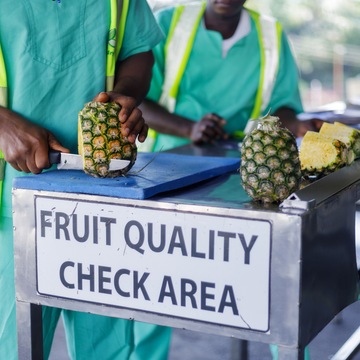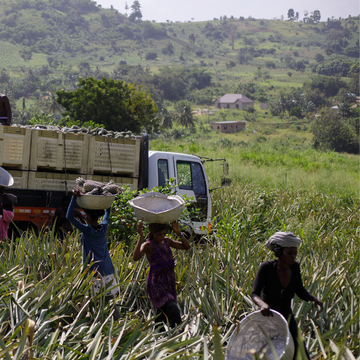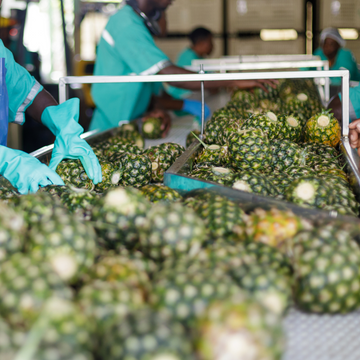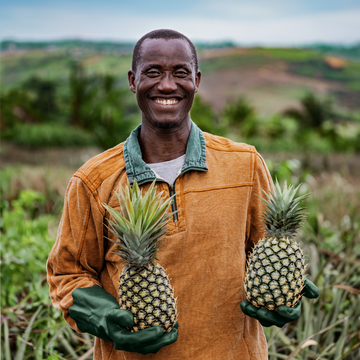The processing methods on-site have been optimized to ensure that every resource is used (and reused) efficiently. Treated rainwater is used to clean the pineapples, conserving valuable water resources. Even the outer parts matter – the pineapple peels are fermented into biogas, which is then used to generate electricity and heat. In fact, 25% of the electricity and 95% of the heat needed for the drying ovens are covered this way. Even the non-usable peel parts find a meaningful use as fuel. This approach minimizes environmental impact while maximizing the efficiency of the production processes.
Nothing Goes to Waste
Our pineapples undergo strict quality controls to ensure that only the best pieces make it into the bag. But what happens to the rest? Every part of the pineapple is utilized, nothing is wasted – from the fruit to the peel. The pineapple peels are composted and returned to the fields as natural fertilizer, enriching the soil and supporting the next harvest. Even the inner core is valuable – the tough pineapple core is processed into pineapple flour, which can be used as a separating agent in food production. This form of circular economy not only promotes sustainability but also supports local small farmers who manage between one and three hectares of land.




